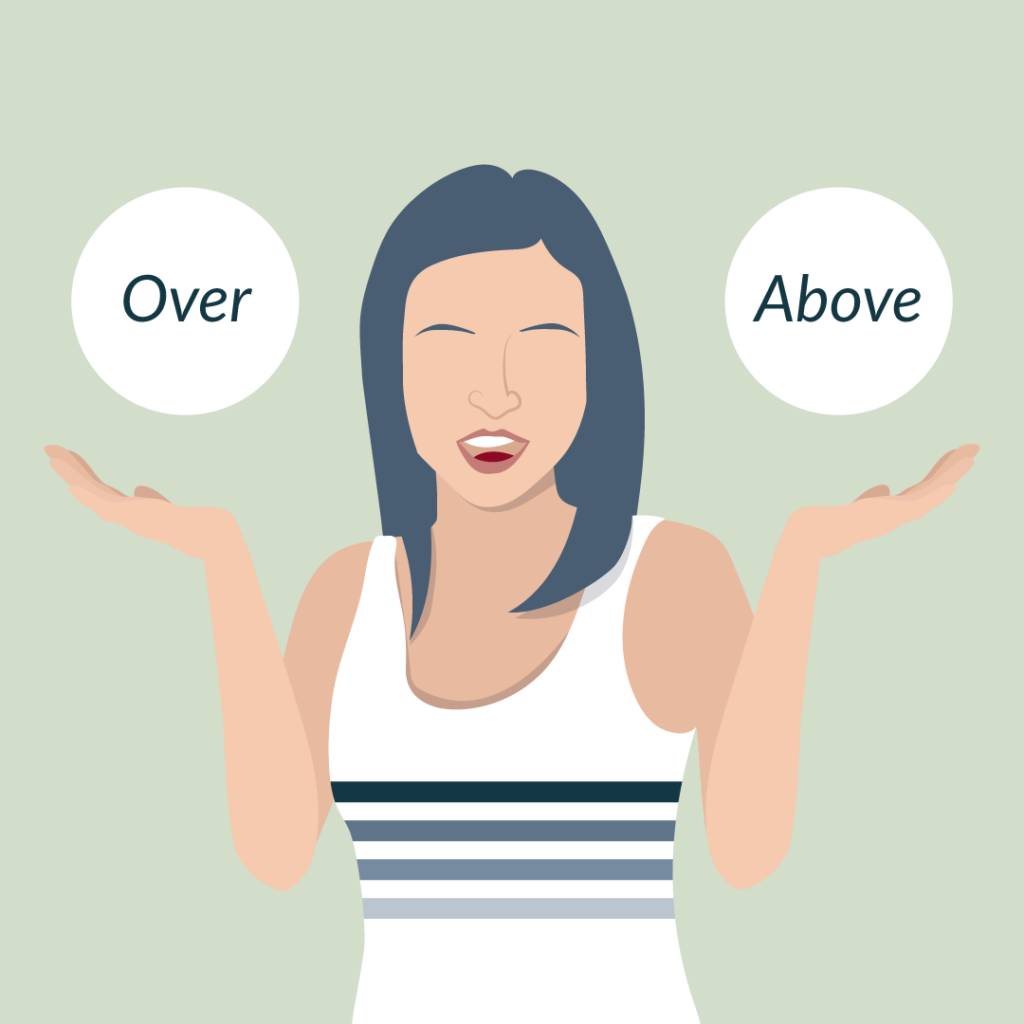La diferencia entre above y over puede ser sutil pero significativa en inglés. Ambas preposiciones se usan para indicar que algo está en una posición más alta, pero su uso puede variar según el contexto. Vamos a explorar cómo y cuándo usar cada una de ellas para evitar confusiones y mejorar tu dominio del inglés.
Cuando usamos above como una preposición, significa higher than (‘más alto que’). Con este significado está bastante cercano a la preposición over. Por ejemplo, en estas frases over puede ser usado en lugar de above:
👉The waves came up above her head and she started screaming (or… came up over her head …)
Las olas sobrepasaban su cabeza y ella comenzó a gritar (o… estaban por encima de su cabeza)
👉 She is a nervous flier, but once the plane got above the clouds, she started to relax (or… got over the clouds…)
Ella se pone muy nerviosa al volar. Pero una vez que el avión estuvo por encima de las nubes, empezó a relajarse (o… sobrevoló las nubes)
Usamos above, pero no over, para referirnos a cosas que están en un nivel más alto o superior:
✅ Do they live in that chalet above the village?
¿Viven en ese chalé en lo alto del pueblo?
❌ Do they live in that chalet over the village?
Normalmente usamos above pero no over, cuando no hay contacto entre las cosas a las que nos referimos. Over y on top of tienen un significado más general y pueden usarse cuando una cosa toca o cubre otra:
✅ They made her comfortable and put a blanket over her.
Le pusieron una manta encima para que estuviera más cómoda.
❌ They made her comfortable and put a blanket above her.
Generalmente usamos over y no above con números:
✅ I get over sixty emails a day.
Recibo más de sesenta correos al día.
❌ I get above sixty emails a day.
✅ If you weigh over 100 kilograms, then you may need to start a diet.
Si pesa por encima de cien kilos debe empezar una dieta.
❌ If you weigh above 100 kilograms…

Cuidado con:
Las temperaturas en relación a cero. Se usa above y no over.
✅ It was three degrees above zero.
Estábamos por encima de tres grados bajo cero
❌ It was three degrees over zero.
Cuando nos referimos a temperaturas en otros contextos, usamos above o over indistintamente:
👉 The temperature is already above 30 degrees (or … over 30 degrees)
La temperatura ya supera los treinta grados (o… está por encima de los treinta grados)
Esperamos que este post te resulte útil. ¿Conocías la diferencia entre above y over?





